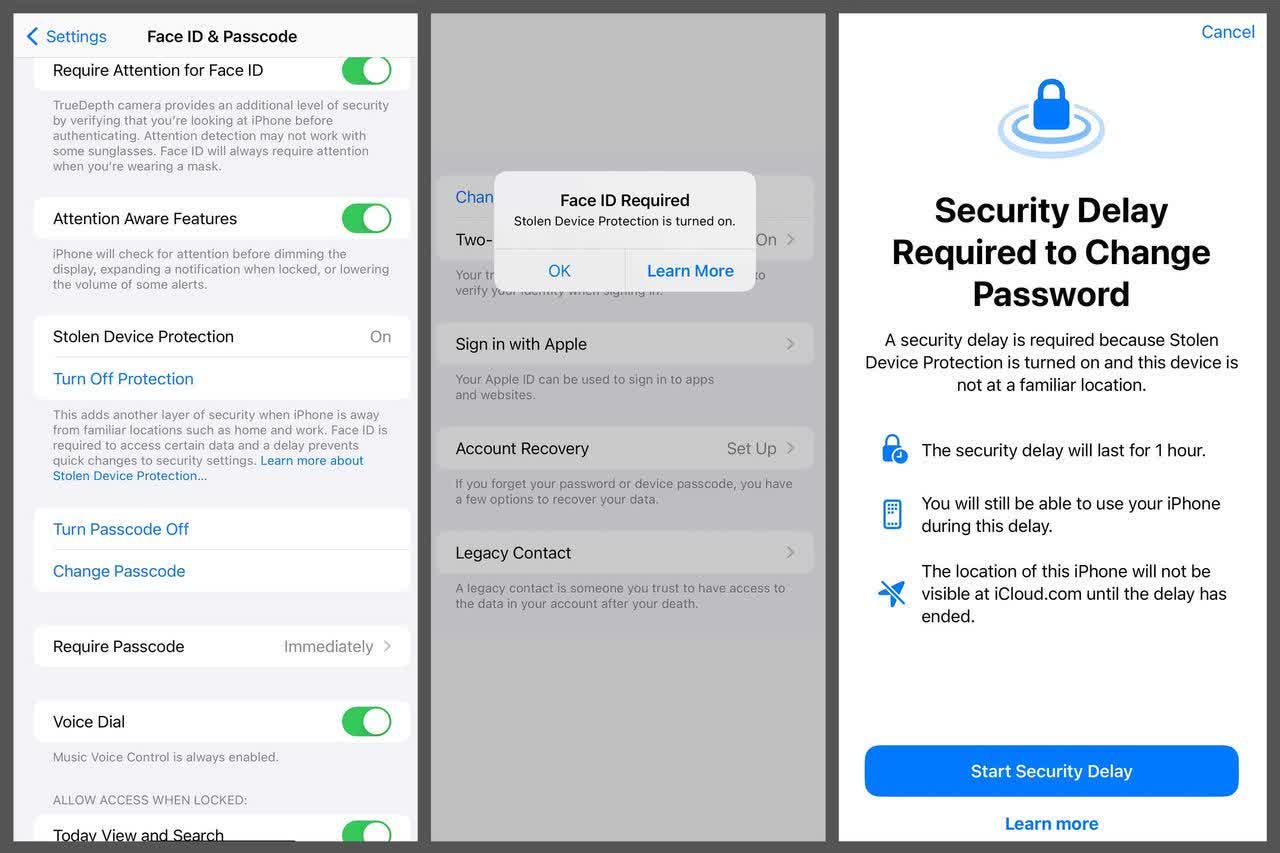Why it matters: Months after The Wall Street Journal reported on iPhone’s vulnerability when thieves know the device’s passcode, Apple has initiated testing a countermeasure. The solution, while not foolproof, introduces an additional layer of security aimed at preventing iPhone theft from leading to identity theft.
Apple’s iOS 17.3 beta introduces a new anti-theft feature that locks some functions behind Face ID or Touch ID in case a thief discovers the phone’s passcode. The beta is currently on a public preview stage and is expected to be released in January or February.
Earlier this year, the Wall Street Journal reported on a growing trend of thieves stealing iPhones after watching or recording the owners as they enter their passcodes. The thieves can then use the passcodes to unlock nearly everything on the phone, quickly locking users out of their Apple accounts and potentially stealing thousands of dollars through Apple Pay, Apple Card, and banking apps.

Click to enlarge
The outlet followed up on the story this week by interviewing a convicted thief who stole hundreds of iPhones. He explained that he would befriend people in social settings, often male college students in bars, and convince them to unlock their phones under the pretense of sharing contact information. After stealing the phone, he would change the Apple ID credentials within minutes before siphoning money through accounts and selling the phone.
Apple’s new feature, Stolen Device Protection, seeks to prevent this by locking money and account-related features behind Face ID and Touch ID, without allowing passcodes as a fallback. It only activates when the phone is away from familiar locations like home or work.
Theoretically, a thief with the passcode would no longer be able to access iCloud Keychain, apply for an Apple Card, deactivate Lost Mode, set up a new device with the phone, use payment methods saved in Safari, or wipe the device. Furthermore, when Stolen Device Protection is engaged, changing credentials or turning off Find My iPhone requires passing two biometrics checks with a one-hour delay in between. While more determined criminals could likely circumvent the measure, it might deter a thief who grabs the phone and runs off with it.
The iOS 17.3 beta also resurrects Collaborative Apple Music Playlists, which appeared in the iOS 17.2 beta but didn’t make it into the public release. The function enables users to invite friends and family members to suggest songs for playlists.
Image credit: Wall Street Journal

